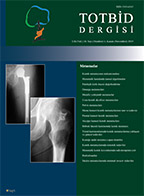
Bone metastasis is a major problem in all solid organ tumors of primarily the breast, lung, prostate, and kidney. The aim of the treatment for bone metastases — which cause pain, pathological fracture, and severe impairment in the quality of life— is first to inhibit their formation and progression, then relieve the pain, and maintain mobility. It is evident that bisphosphonates, as potent inhibitors of osteoclastic activity besides their ability to stop osteoclast associated bone resorption, have distinct anti-tumor activities, trigger the apoptosis in tumor cells, block the cell adhesion and invasion, inhibit angiogenesis by blocking the release of cytokines and growth factors, protect bone from metastasis by immunomodulatory effects, and decrease the incidence of skeletal related events. In the published treatment guidelines, in both prevention and treatment of bone metastasis, foremost zoledronic acid, and predominantly second and third generation bisphosphonates are recommended for use. The use of bisphosphonates either locally in liposomes or nanoparticules or systemically with conjugates of macromolecules and other drugs as chemotherapeutic agents can cause the increase of the effects, and decrease of their side effects.